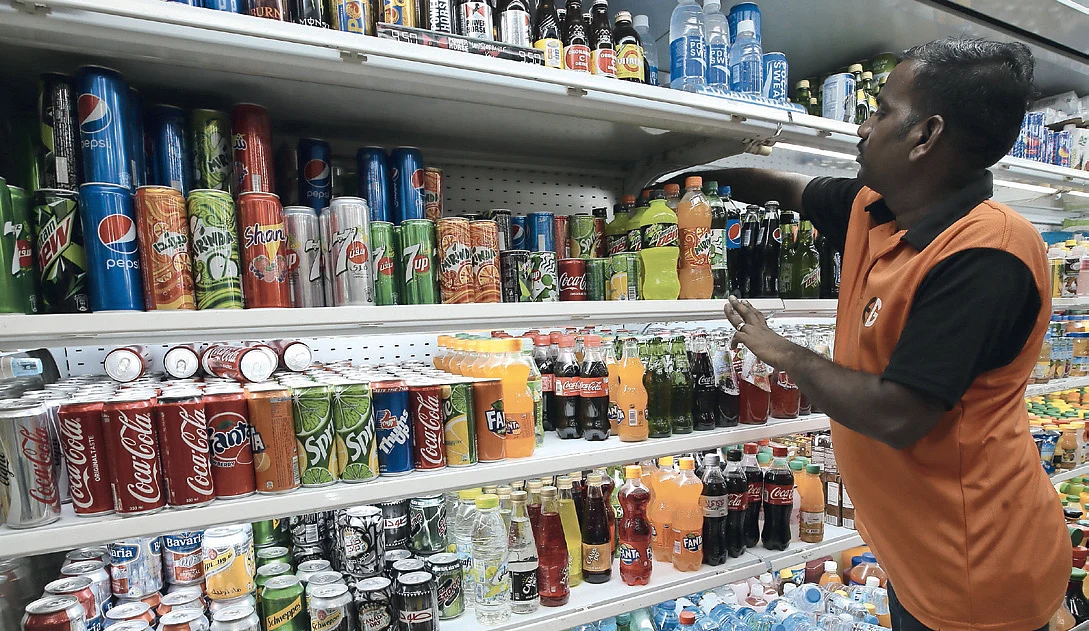
First UAE Plant To Produce Food-Grade CO2 Opens In Ras Al Khaimah
The UAE has opened its first carbon capture and utilisation (CCU) plant dedicated to producing high-purity carbon dioxide (CO2). This marks a new step in the country's efforts to reduce industrial emissions and strengthen domestic CO2 supply chains.
What does the plant do?The facility, located in Ras Al Khaimah, has been developed by Gulf Cryo, a regional industrial gases company, in partnership with RAK Ceramics, one of the world's largest ceramics manufacturers. The plant captures CO2 emissions from RAK Ceramics' natural-gas engines and converts them into 99.99 per cent pure, food-grade CO2 that can be used across several industries, including food and beverage, healthcare, agriculture, and energy.
Recommended For YouStay up to date with the latest news. Follow KT on WhatsApp Channels.
Owned and operated by Gulf Cryo, the new facility captures around 17,000 metric tons of CO2 per year. The gas is extracted from flue emissions that contain low concentrations of CO2, then processed through an energy-efficient purification system to produce liquefied carbon dioxide. The final product is distributed to companies across the UAE that rely on CO2 for industrial and commercial applications.
Reducing dependence on importsBefore this facility came online, Gulf Cryo imported recovered CO2 from its carbon recovery plants in Kuwait and Saudi Arabia to meet local demand. The establishment of a domestic recovery and purification site now allows the UAE to source its own supply of high-purity CO2, reducing dependence on imports and supporting the creation of a circular carbon economy.
According to Gulf Cryo, the Ras Al Khaimah plant is the first in the UAE specifically designed to produce food-grade CO2 for the merchant market. The company said the facility will strengthen the reliability of local CO2 supplies while cutting emissions directly at their source.
Where is pure CO2 used?The captured carbon is used by a range of industries across the UAE. In the food and beverage sector, it is applied in carbonation and packaging; in healthcare, it is used for medical gases and sterilisation; and in agriculture and energy, it supports various production processes. By reusing captured CO2 in these sectors, the facility helps divert greenhouse gas emissions away from the atmosphere and into productive use.
Sustainability in RAKThe plant was officially inaugurated by Sheikh Saqr bin Saud Al Qasimi, Chairman of RAK Ceramics, alongside Sami Huneidi, Chief Administrative Officer of Gulf Cryo, and senior executives from both organisations. The project forms part of RAK Ceramics' broader decarbonisation plan and contributes to the emirate's sustainability targets under the Ras Al Khaimah Integrated Sustainability Strategy 2050.
The Ras Al Khaimah facility is now the UAE's first operational site to capture carbon emissions from industrial sources and convert them into high-purity CO2 for commercial use, establishing a local model for emission reduction and resource recovery within the manufacturing sector.
Carbon neutralityThe project aligns with the UAE Net Zero 2050 strategy, which aims to achieve carbon neutrality through cleaner technologies and industrial efficiency. It also reflects growing interest among private companies in developing carbon capture and utilization projects to meet national sustainability targets.
Gulf Cryo said the plant is part of its long-term plan to expand CO2 recovery operations across the region, while RAK Ceramics noted that integrating emission-capture systems supports its commitment to reducing its environmental footprint and improving operational efficiency.

Legal Disclaimer:
MENAFN provides the
information “as is” without warranty of any kind. We do not accept
any responsibility or liability for the accuracy, content, images,
videos, licenses, completeness, legality, or reliability of the information
contained in this article. If you have any complaints or copyright
issues related to this article, kindly contact the provider above.


















Comments
No comment